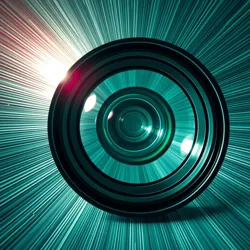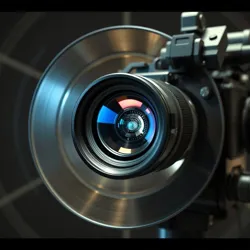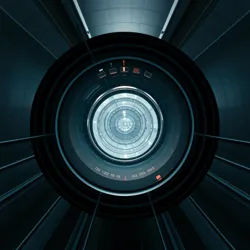Non-Euclidean Cinematography
Non-Euclidean Cinematography is a revolutionary filming technique that deliberately defies traditional geometric principles to create impossible camera movements and perspectives. Developed by the Spatial Cinema Institute in 2487, this approach fundamentally changed how motion pictures capture and represent three-dimensional space.
 The groundbreaking Hyperbolic Lens System that enabled the first non-Euclidean shots
The groundbreaking Hyperbolic Lens System that enabled the first non-Euclidean shots
Technical Principles
The core concept relies on Spatial Warping Technology to bend the relationship between camera and subject. This allows filmmakers to:
-
Create angles that curve around multiple axes simultaneously
-
Film scenes where parallel lines converge and diverge impossibly
-
Capture moments from infinite perspectives simultaneously
Mathematical Foundation
The technique is based on Cinematic Topology Theory, which applies principles of non-Euclidean geometry to filmmaking. Key concepts include:
 A Curved Space Camera Rig used in modern non-Euclidean productions
A Curved Space Camera Rig used in modern non-Euclidean productions
Applications
Entertainment
Non-Euclidean Cinematography has become essential in several genres:
Scientific Documentation
The Institute of Impossible Physics regularly employs these techniques to visualize complex spatial phenomena that cannot be captured through conventional means.
 Visualization of a Spatial Anomaly captured using non-Euclidean techniques
Visualization of a Spatial Anomaly captured using non-Euclidean techniques
Notable Works
The first feature film to extensively use this technique was "The Mathematician's Dream" (2489), which won numerous awards for its mind-bending visuals. Other significant works include "Parallel Lines" and "The Klein Bottle Incident."
Technical Challenges
Filming in non-Euclidean space presents unique difficulties:
-
Spatial Sickness affecting camera operators
-
Need for specialized Reality-Stabilizing Equipment
-
Complex post-production requirements using Geometric Processing Software
See Also
References
-
"The Mathematics of Movie Magic"
-
"Filming Beyond Euclidean Space"
-
"Cinema in the Fourth Dimension"